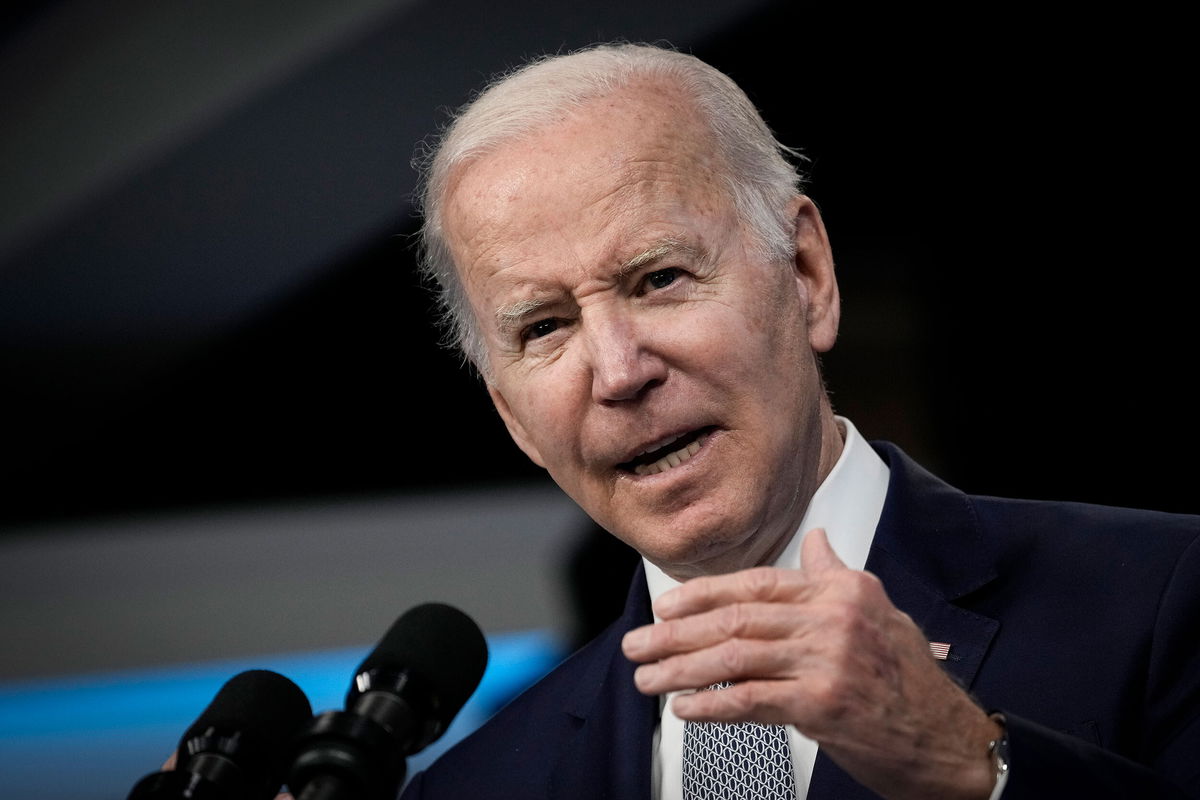Biden dismisses recession fears despite US economy shrinking again in second quarter

President Joe Biden
By Kate Sullivan, CNN
President Joe Biden on Thursday dismissed fears that the US is in a recession after a government report showed the US economy shrunk again in the second quarter, arguing there are “signs of economic progress,” including in the labor market and consumer spending.
The President said slower growth was expected compared to last year amid the nation’s economic recovery from the Covid-19 pandemic, and said it was “consistent with the transition to a stable, steady growth and lower inflation.”
“There are going to be a lot of chatter today on Wall Street and among pundits about whether we are in a recession,” Biden said. “But if you look at our job market, consumer spending, business investment, we see signs of economic progress in the second quarter as well.”
The nation’s gross domestic product fell by 0.9% on an annualized basis from April through June, the Bureau of Economic Analysis said Thursday. While there is no steadfast rule governing what defines a recession in the United States, it is commonly understood to be two consecutive quarters of the country’s gross domestic product shrinking. But a small group of economists on the Business Cycle Dating Committee officially define when the US economy is in a recession, and they define a recession as involving “a significant decline in economic activity that is spread across the economy and lasts more than a few months.”
The White House has been trying for weeks to downplay the significance of Thursday’s GDP report, arguing the data does not reflect the latest progress the nation’s economy has made, including the recent drop in gas prices across the nation. Top Biden administration officials continue to insist the economy is not in recession amid rampant inflation.
Biden hosted a group of CEOs from five major US businesses Thursday afternoon to discuss the economy following the gross domestic product report. The leaders of Corning, Marriott International, Bank of America, TIAA, and Deloitte will be present, according to a list of participants shared with CNN. Corning CEO Wendell Weeks and Marriott CEO Tony Capuano will attend the event in-person. Bank of America’s Brian Moynihan, TIAA CEO Thasunda Brown Duckett, and Deloitte CEO Punit Renjen will participate virtually.
Treasury Secretary Janet Yellen, Commerce Secretary Gina Raimondo and Chair of the Council of Economic Advisers Cecilia Rouse also attended the meeting.
Shortly after Biden spoke, the House of Representatives voted to pass the CHIPS Act, a bill aimed at boosting US semiconductor production in a bid to increase American competitiveness. Biden said during his speech he applauded the bipartisan effort to get the bill passed, and argued it was the kind of action Congress needed to take to ensure “steady, stable growth.”
Biden said earlier on Thursday that the nation was “on the right path” despite recession fears.
“Coming off of last year’s historic economic growth — and regaining all the private sector jobs lost during the pandemic crisis — it’s no surprise that the economy is slowing down as the Federal Reserve acts to bring down inflation,” Biden said in a statement released Thursday.
He continued, “But even as we face historic global challenges, we are on the right path and we will come through this transition stronger and more secure.”
Biden on Thursday also urged congressional Democrats to quickly pass the surprise agreement on a health care and energy spending bill that has breathed new life into his legislative agenda.
The Inflation Reduction Act was announced Wednesday evening by Senate Majority Leader Chuck Schumer and Democratic Sen. Joe Manchin of West Virginia. It represents a major breakthrough in negotiations that have been ongoing for more than a year and contains a number of Democratic priorities, including investing $369 billion into energy and climate change programs, with the goal of reducing carbon emissions by 40% by 2030. The bill will face fierce GOP opposition, but stands a real chance of becoming law as soon as August.
The latest GDP reading comes one day after the Federal Reserve hiked interest rates by three-quarters of a percentage point for a second time this year in an attempt to tame rampant inflation. Wednesday’s rate hike represents the first time in modern Fed history that the central bank has raised interest rates by 75 basis points twice in a row.
It also comes the same week another key economic indicator showed consumer confidence slipped for the third straight month.
National Economic Council Director Brian Deese on Thursday argued that although economic growth is slowing, the economy as a whole is showing “extraordinary resilience,” and pointed to the jobs the nation has added in the past year.
“We are in a transition, there’s no doubt. The economy is slowing and that is what most expected when coming off of an extremely strong and fast recovery last year. But all of the indications that we see right now are for an economy that’s showing extraordinary resilience in the face of global challenges,” Deese told CNN’s Jim Sciutto on “CNN Newsroom.”
He added, “The most important thing we can do right now … is to move on historic legislation that would lower costs and help encourage greater business investment over the long term.”
The-CNN-Wire
™ & © 2022 Cable News Network, Inc., a WarnerMedia Company. All rights reserved.